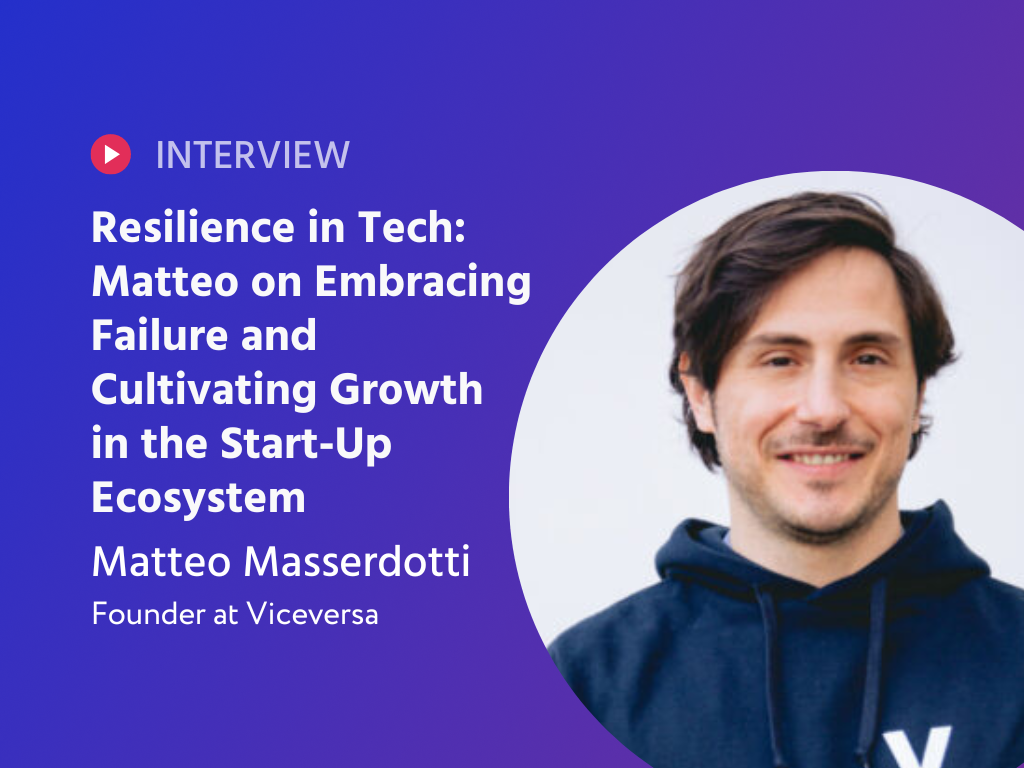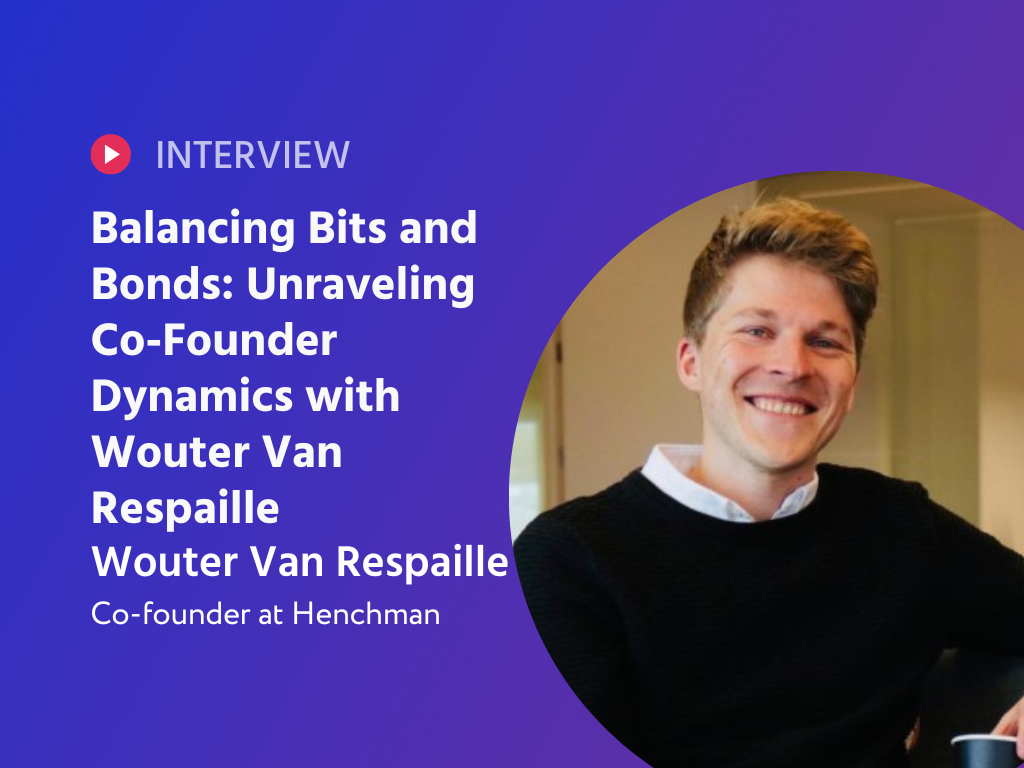In a world where the lines between technology, branding, and consumer engagement are increasingly blurred, innovators who can seamlessly navigate these intersections are rare gems. Enter Jamie Calon, Co-Founder and CEO of Regulator, who has leveraged his expertise in systems and processes to revolutionize trade marketing.
Hailing from a diverse background that includes a stint as a professional athlete, Calon is no stranger to the disciplines of focus, strategy, and execution. Today, we are thrilled to share an insightful conversation between Matthew of Temy, an international software development company, and Jamie Calon. Crossing time zones and bridging industries, the two discuss the genesis and impact of Regulator and 54Blue, the nuances of trade marketing, and the indispensable role of effective systems.
From reshaping Oakley's marketing infrastructure to creating an all-encompassing platform for multiple brands, Calon's journey is a masterclass in innovation. Join us as we delve into the mind of a trailblazer whose solutions are redefining the future of retail and marketing.
Cracking the Code: How Jamie Calon's Journey from Champion Cyclist to Innovating in Retail Transforms How Brands Engage Consumers
No one's journey is linear, and Jamie Calon's is no exception. Once a national cycling champion in Canada, Jamie started with Oakley as a sales agent and quickly ascended the ranks, winning both sales and marketing agency of the year. But what sets Jamie apart isn't just the trophies. It's his knack for identifying the 'broken processes,' whether that's the broken suspension systems on mountain bikes or the clunky Excel spreadsheets hindering a brand's marketing. When Oakley's traditional methods seemed to hit a roadblock, Jamie stepped in with a "black box budget" and built a custom system to streamline their trade marketing, from scratch.
"The fastest route is the most direct, the shortest route. If you don't understand where you're going, you're doomed," Jamie says, a mantra that has guided him through both his cycling career and entrepreneurial journey. At the core of Jamie's companies, 54Blue and Regulator, is the same principle: optimizing efficiency. While 54Blue creates tactile customer experiences for major brands like Oakley and Monster Energy, Regulator acts as the back-end, filling the gaps that others overlook. Jamie equates this to mountain biking. "You need to add in complexity slightly to be the most efficient," he explains, drawing parallels between the intricate mechanics of his patented mountain bike suspension system and the comprehensive software he's designed to manage brand marketing.
The fastest route is the most direct, the shortest route. If you don't understand where you're going, you're doomed
So, what's the big deal with fixing what's not obviously broken? Well, Jamie thinks it's all about seeing beyond the obvious. When Oakley had to distance itself from Lance Armstrong, the brand suddenly had to reckon with a logistical nightmare: removing and replacing around 15,000-20,000 images of Armstrong from its marketing. This was a challenge that a spreadsheet couldn't solve but is precisely the type of challenge Regulator was built to manage. In an industry where millions can be "burned" in trade marketing, Jamie's knack for precision might just be the game-changer brands didn't know they needed.
Navigating the Minefield of Branding: Jamie on the High-Stakes Game of Real-Time Marketing
Picture this: Lance Armstrong is the face plastered across 2,000 storefront windows. Then scandal hits. It's not just about peeling off those posters. It's an orchestration of money, timing, and brand integrity. Jamie takes us behind the scenes of what he calls the "real complexities" of real-time marketing. "Let's just say, it's not all glamour and glitz. The logistics behind the scenes are an intricate ballet, a dance with high stakes," Jamie divulges. When an athlete or celebrity fronting a brand goes rogue, it's more than a minor headache for the marketing team. It's a migraine of colossal proportions.
"Think about it," Jamie muses. "It's not just about one country or one state. We're talking global impact here. Oakley had to deal with the Oscar Pistorius situation in South Africa. Now, magnify that complexity by 30x in a market like the United States, where consumerism is at a higher tier. It's mind-blowing!" Then he drops the zinger, "The complexities can be massive. A large company could spend anywhere from 4% to 18% of their gross on marketing. That's a ton of money to watch go down the drain if things go sideways."
But Jamie isn't just a professional in the chaos of branding; he's a survivor. From working at a bicycle store as a teenager to becoming a mid-tier professional cyclist, Jamie's had to hustle. "I was never the strongest or fittest guy, but I was crafty. And being crafty meant that I had to think my way around it," he reflects. It's this scrappy, entrepreneurial spirit that's allowed him to navigate the volatile world of real-time marketing with such finesse. "Humans are about investment," Jamie adds. "And to be honest, it doesn't have to be as dramatic as Oscar or Lance. Sometimes it's just about a misplaced comma or a translation gone wrong, and suddenly you have a PR disaster on your hands."
In a world where a tweet can trigger a stock plunge and a spelling error can ignite social media outrage, Jamie reminds us, "Creative people that have to launch creative in the market are literally the exact wrong people to copy check stuff. But hey, that's the beauty and the madness of this business." A true realist in a world of perpetual change, Jamie concludes, "At the end of the day, it's about being prepared for the unexpected. Because in this game, the unexpected is the only guarantee."
Creative people that have to launch creative in the market are literally the exact wrong people to copy check stuff. But hey, that's the beauty and the madness of this business
From Pedals to Prodigy: How Jamie Turned Mediocre Bikes into a Game-Changing Career
You might not expect it, but Jamie was a "terrible student." Yep, you read that right—terrible. But when Jamie stood on the podium at the Canadian national championships, it was less about accolades and more about an epiphany. "The bike I was on from GT sucked," Jamie said, unapologetically honest about the flawed design. A lackluster education didn't stop him from understanding the "very basic upper sort of level of really simple physics." Forget formulas; Jamie has an instinctual understanding of levers, friction, and how to make a bike not just good but great.
Jamie's approach to marketing and life is refreshingly straightforward. "Human nature is not that tricky. You just have to study it," he says, adding a metaphorical mic drop to our conversation. He uses this mindset not just for product design but also for understanding everything from animal behavior to Taylor Swift's empire-building. "Just about anyone as long as you put your mind to it, you can do a really good name, be an impactful human," he says. "Most people are just lazy, though. Taylor's not."
Human nature is not that tricky. You just have to study it
If you're looking for Jamie's secret sauce, it's all about the company he keeps. From a "tiger shark" of a wife to a circle that includes pro snowboarders and business moguls, Jamie believes you are the sum of your associations. "The humans you surround yourselves with are super important," Jamie emphasizes. His life mantra? "Never stop." And it's not just a saying; it's literally on the head tube of his mountain bike, a constant reminder that obstacles are just challenges in disguise. "Doesn't take much to not stop. I just look down, I see it and I go right. Yeah."
Jamie's Life Mantra: 'Everyone's Super Inspiring, Just Find the Good in Them'
Jamie doesn't have a single role model; instead, he casts a wide net, extracting lessons from both heroes and villains. "The answer is literally everybody," he says, his voice tinged with excitement. Imagine looking at the world like your favorite bookstore, each person a fascinating new read—from close family and friends to celebrities and even, dare we say, the notorious ones. "I get as much out of terrible people as I get out of great people," Jamie adds, flipping the script on the conventional wisdom of keeping your eyes only on the shining stars.
The key to Jamie's perspective? Striking a balance, understanding that nobody is a saint or a sinner through and through. Jamie brings up Lance Armstrong, a figure as admired for his cancer advocacy as he is criticized for his controversial actions. He could be the poster child for human duality. "You know, it's a difficult thing," he muses, "But yeah, if you can look through all of that and pull out the good… it's not surprising that people crack."
His closing thoughts are, in essence, a guidebook for surviving the highs and lows of life—both personally and professionally. "When fun is the balance point, humans have a really hard time stopping," Jamie cautions. It's a perfect distillation of why he believes everyone has something to offer. "There's something good in just about everyone, few people, maybe not, but most people if we look hard enough, we'll find a bit." The world, in Jamie's eyes, is a treasure trove of teachable moments, a realm filled with flawed but fascinating characters, each worthy of a second look.
There's something good in just about everyone, few people, maybe not, but most people if we look hard enough, we'll find a bit




